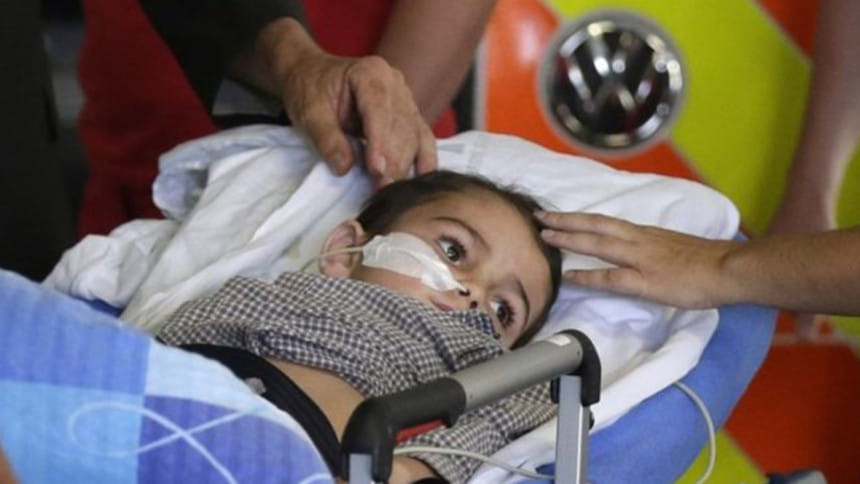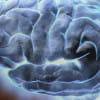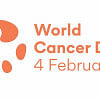Proton cancer therapy 'proves effective'

A cancer treatment at the centre of an NHS controversy in 2014 causes fewer side effects in children than conventional radiotherapy, according to new research.
The study, published in The Lancet Oncology, suggests proton beam therapy is as effective as other treatments.
Researchers looked at 59 patients aged between three and 21 from 2003 to 2009.
In 2014 the parents of Ashya King took him out of hospital in Hampshire to get the treatment abroad.
Their actions led to a police operation to find them.
Ashya, who was five at the time of his treatment, is now cancer free, his family said last year.
'Acceptable toxicity'
All the patients who took part in the study, led by Dr Torunn Yock from the Massachusetts General Hospital in the US, had the most common kind of malignant brain tumour in children, known as medulloblastoma.
After five years, their survival rate was similar to that of patients treated with conventional X-ray radiotherapy, but there were fewer side effects to the heart and lungs, the study found.
Dr Yock told BBC Radio 5 live: "The major finding is that proton therapy is as effective as photon therapy [conventional X-ray radiotherapy] in curing these patients and what is also very exciting is that it is maintaining these high rates of cure but doing so with less late toxicity, which has dramatic quality of life improvements."
The paper said: "Proton radiotherapy resulted in acceptable toxicity and had similar survival outcomes to those noted with conventional radiotherapy, suggesting that the use of the treatment may be an alternative to photon-based treatments."
Independent expert Prof Gillies McKenna, who is the head of the department of oncology at the University of Oxford, said the research suggested that the "side effects are indeed dramatically reduced" with proton beam therapy.
"There were no side effects seen in the heart and lungs and gastrointestinal tract, which are almost always seen with X-rays, and no secondary cancers were seen at a time when we would have expected to see them in X-ray treated patients," he added.
But Dr Kieran Breen, from Brain Tumour Research, said there was still more research needed into the treatment.
"In the longer term, we need to try and understand what effects it will have on people and there are many other forms of tumour both in the brain and in other parts of the body," he said.
Proton beam therapy is currently only available in the UK to treat eye cancers, but patients with other forms of cancer can apply for NHS funding for the therapy abroad.
The first proton beam facility in the UK is due to be made available in Newport by the end of 2016, as a "result of direct investment by the Welsh government," according to a Welsh Assembly spokesman.
The Department of Health has said that from April 2018 the treatment will be offered to up to 1,500 cancer patients at hospitals in London and Manchester, following investment worth £250m.
Two years ago a dispute about the use of the treatment prompted Brett and Naghemeh King, of Southsea, Hampshire, to remove their son Ashya from a hospital in Southampton against his doctors' advice.
The parents wanted their five-year-old to undergo proton beam therapy in Prague, which had not been recommended by his care team in Southampton.
Their actions sparked an international police manhunt, and the couple were later arrested and held in a prison in Madrid.
They were eventually released and Ashya's therapy took place, with the NHS later agreeing to pay for it.
A spokesman for University Hospital Southampton NHS Foundation Trust, said that medulloblastoma was not currently on the list of tumours approved for this treatment on the NHS.
"However, we welcome any update to the existing clinical evidence on cancer treatments and will follow any expansion of the current national criteria," a spokesman added.

 For all latest news, follow The Daily Star's Google News channel.
For all latest news, follow The Daily Star's Google News channel. 








Comments